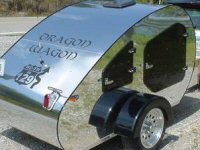From one of the workers
In 2005 it was another contract year and this time there was no way out of concessions. The Union negotiated a deal that would save the company $150 million a year in labor. It was a tough internal battle to get people to vote for it. We turned it down twice. Finally the Union told us it was in our best interest and something had to give. So many
of us, including myself, changed our votes and took the offer. Remember that next time you see CEO Rayburn on tv stating that we haven't sacrificed for this company. The company then emerged from bankruptcy.
In 2005 before concessions I made $48,000, last year I made $34,000. My pay changed dramatically but at least I was still contributing to my self-funded pension.
In July of 2011 we received a letter from the company. It said that the $3+ per hour that we as a Union contribute to the pension was going to be 'borrowed' by the company until they could be profitable again....
This money will never be paid back. The company filed for bankruptcy and the judge ruled that the $3+ per hour was a debt the company couldn't repay. The Union continued to work despite this theft of our self-funded pension contributions for over a year....
What was this last/best/final offer? You'd never know by watching the main stream media tell the story. So here you go:
1) 8% hourly pay cut in year 1 with additional cuts totaling 27% over 5 years. Currently, I make $16.12 an hour at TOP rate of pay in the bakery. I would drop to $11.26 in 5 years.
2) They get to keep our $3+ an hour forever.
3) Doubling of weekly insurance premium.
4) Lowering of overall quality of insurance plan.
5) TOTAL withdrawal from ALL pensions. If you don't have it now then you never will.
....Remember how I said I made $48,000 in 2005 and $34,000 last year? I would make $25,000 in 5 years if I took their offer.
http://www.chicagotribune.com/sns-rt-ho ... 8001.story Managers bonus for shutting down Hostess
From that article
union officials and line workers said last week that union workers had already agreed to a series of concessions over the years and the company had failed to invest in brand
marketing and modernization of plants and trucks, instead focusing on enriching owners such as private equity firm Ripplewood Holdings and hedge funds Silver Point Capital and
Monarch Alternative Capital.
















